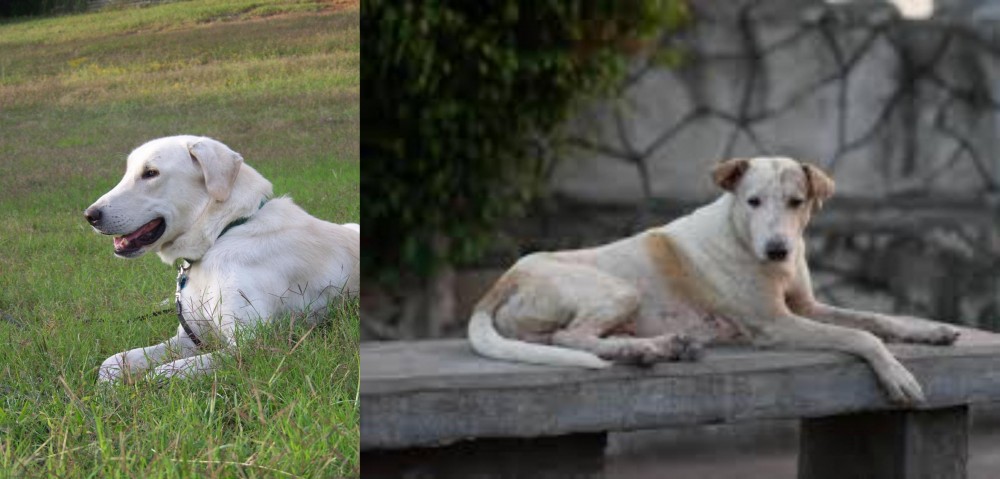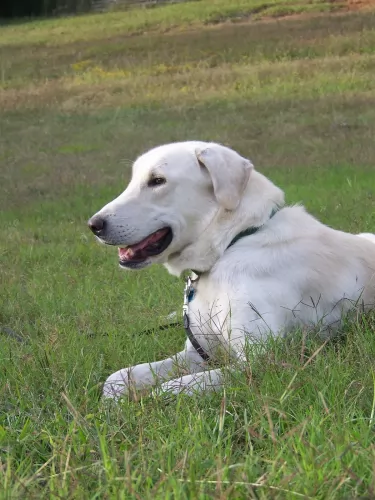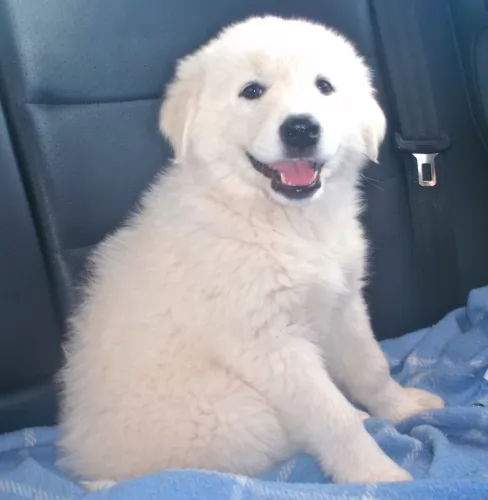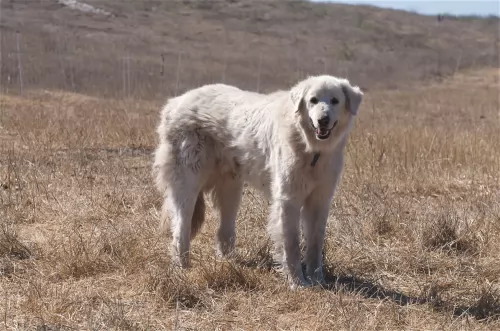 Petzlover
Petzlover Akbash Dog is originated from Turkey but Askal is originated from Philippines. Akbash Dog may grow 14 cm / 6 inches higher than Askal. Akbash Dog may weigh 36 kg / 80 pounds more than Askal. Akbash Dog may live 4 years less than Askal. Both Akbash Dog and Askal has almost same litter size. Akbash Dog requires Moderate Maintenance. But Askal requires Low Maintenance
Akbash Dog is originated from Turkey but Askal is originated from Philippines. Akbash Dog may grow 14 cm / 6 inches higher than Askal. Akbash Dog may weigh 36 kg / 80 pounds more than Askal. Akbash Dog may live 4 years less than Askal. Both Akbash Dog and Askal has almost same litter size. Akbash Dog requires Moderate Maintenance. But Askal requires Low Maintenance
 Akbash breed became popular in the 1970s. Around that period, Akbash was introduced to North America. There is archeological evidence that this breed was popular even in the 750-300 BC. Of course, it wasn’t the exact dog as we know it today, but there are many similarities between Akbash and dog from the ancient period. This breed was developed in Turkey to be a guardian dog. They were perfect flock guardians.
Akbash breed became popular in the 1970s. Around that period, Akbash was introduced to North America. There is archeological evidence that this breed was popular even in the 750-300 BC. Of course, it wasn’t the exact dog as we know it today, but there are many similarities between Akbash and dog from the ancient period. This breed was developed in Turkey to be a guardian dog. They were perfect flock guardians.
 The Askal is a native dog of the Philippines where until fairly recently it was viewed condescendingly. As strays they have been slaughtered and dished up at the dinner table. Fortunately, campaigns have been launched to protect the dogs. The Askal has existed in the Philippines for centuries but the actual origin of the dogs is unknown. Some people speculate about the dogs, saying they look like the Dingo and must have descended from Australia’s native dog.
The Askal is a native dog of the Philippines where until fairly recently it was viewed condescendingly. As strays they have been slaughtered and dished up at the dinner table. Fortunately, campaigns have been launched to protect the dogs. The Askal has existed in the Philippines for centuries but the actual origin of the dogs is unknown. Some people speculate about the dogs, saying they look like the Dingo and must have descended from Australia’s native dog.
PAWS which is an animal Rescue and Re-homing, non-profit group encourages the use of the term Aspin for the dog as opposed to Askal and has had campaigns to promote the Aspin as a wonderful, local pet – loyal, robust and intelligent. In fact the Aspin Club has now been formed to give the dogs a club of their own and to promote the local breed.
 Weight of the Akbash dog variates from 41-64kg, while their height is 71-78cm. Female Akbash is smaller than a male Akbash, but not for much.
A lifespan of an average Akbash dog is 10-11 years, but if they have cared properly, they tend to live longer.
Litter Size of Akbash is 8-9 puppies.
Another Name for Akbash is Akbas Coban Kopegi, Coban Kopegi.
Weight of the Akbash dog variates from 41-64kg, while their height is 71-78cm. Female Akbash is smaller than a male Akbash, but not for much.
A lifespan of an average Akbash dog is 10-11 years, but if they have cared properly, they tend to live longer.
Litter Size of Akbash is 8-9 puppies.
Another Name for Akbash is Akbas Coban Kopegi, Coban Kopegi.
 Askals make awesome companions – intelligent and loving and their status is improving.
Askals make awesome companions – intelligent and loving and their status is improving.
Askals are now being trained to be bomb and narcotics sniffing dogs and it seems as though there are talks about making the Askal the national dog of the Philippines. They’re smart enough to train and socialize if you train them with patience and kindness.
They are medium-sized, feisty dogs with fairly long thin legs with short dense coats of many different colours. With their long, pointed muzzles and good, strong teeth, their ear shapes vary too, as some have pricked ears, while others have one pricked and one floppy ear.
The Askal will make a good watch dogs and he is protective with hisr human family, getting on well with children in the home, loving their energy and games.
 Have in mind that Akbash is a large and powerful dog. They are bred through generations to be guardians and suspicious. They are very independent because they tend to make their own decisions while guarding flocks. They will require adequate socialization, but overall, they are very intelligent and they tend to learn quickly. It requires time and patience, but are great pets for right owners. Akbash has a white to biscuit color coat. They also have a dark pigment around nose, eyes, and mouth. Akbash is very quick and agile dog, which might be surprised because of its size.
Have in mind that Akbash is a large and powerful dog. They are bred through generations to be guardians and suspicious. They are very independent because they tend to make their own decisions while guarding flocks. They will require adequate socialization, but overall, they are very intelligent and they tend to learn quickly. It requires time and patience, but are great pets for right owners. Akbash has a white to biscuit color coat. They also have a dark pigment around nose, eyes, and mouth. Akbash is very quick and agile dog, which might be surprised because of its size.
It is important to train them since the puppyhood. They are working dogs and they will be happy when they have tasks during training. Due to their independence, consistent and steady training is important. An old-fashioned way of training that includes punishment is not recommendable. Positive training with awards is the best way to train your Akbash dog. They do not require a lot of daily exercises. Daily walks would do more than enough. Younger dogs need more exercise than more mature ones. They can be very good for other animals, but they have to be socialized with them. It is the best way to socialize your dog when it is still a puppy.
 The Askal is an independent canine, street-smart and intelligent. He is a great pet for anyone who hasn't owned a pet before as he is low maintenance and undemanding.
The Askal is an independent canine, street-smart and intelligent. He is a great pet for anyone who hasn't owned a pet before as he is low maintenance and undemanding.
The Askal is intelligent and you won't have trouble teaching him some tricks and socializing him. He gets on well with children in the home as well as with other pets and his loyalty and devotion will ensure that he makes one hang of a companion.
He is just your 'dog next door', has no hang-ups and is simple to please. Be patient and kind to him and you'll be rewarded by having an awesome best friend.
Your Askal is wanting to be your unconditional friend through thick and thin. His undemanding, low maintenance character will mean that you won't be running to the vet with him all the time. Look after him well, include him as a member of the family and in exchange you'll have a wonderful best friend.
 Askals are healthy dogs because they are a mixed breed. The parents of a mongrel puppy have fewer genes in common than would be with a pure-bred mating. This is a distinct health advantage and mongrels are healthier and live longer than pure bred dogs. Street dogs have greater generic diversity and this gives them high resistance to many common dog illnesses.
Askals are healthy dogs because they are a mixed breed. The parents of a mongrel puppy have fewer genes in common than would be with a pure-bred mating. This is a distinct health advantage and mongrels are healthier and live longer than pure bred dogs. Street dogs have greater generic diversity and this gives them high resistance to many common dog illnesses.
The Askal is a tough, low maintenance dog that won’t cost you a lot of money in veterinary bills. Every Askal puppy will have to be taken to the vet to get his must-have vaccinations to protect him from killer dog diseases.
 Akbash dog is very easy to care. They can stay fit on a minimum amount of food. 2-2.5 cups divided into two meals would be ideal for your dog. They require meat, so giving them dry industrial food can be a solid substitute. Vegetables and oil can also be included in meals. It will keep your dog healthy and happy.
Akbash dog is very easy to care. They can stay fit on a minimum amount of food. 2-2.5 cups divided into two meals would be ideal for your dog. They require meat, so giving them dry industrial food can be a solid substitute. Vegetables and oil can also be included in meals. It will keep your dog healthy and happy.
Puppies have to eat more meals per day. It is the best to give your puppy Akbash 3-5 meals per day. Those meals should be divided into smaller portions. It is recommended to give your puppy all necessary vitamins and minerals that include calcium for stronger bones. It will improve the overall health of your dog, and it will help it develop into a healthy adult dog.
Akbash will request some grooming, but they are not very difficult to groom. They require regular grooming. Every few days will be enough, except when they are shedding. Akbash will need daily grooming when shed. You can bath your pet occasionally, but not very often. Bathing, if necessary, should be done only 5-6 times a year. There is no need for more.
 the Askal is a low shedder and to keep him in tip-top condition will require you brushing his shor-haired coat twice a week.
the Askal is a low shedder and to keep him in tip-top condition will require you brushing his shor-haired coat twice a week.
Askals dogs are native Philippine dogs and aren’t difficult to feed. While you want to give your Askal the best quality food possible, they are unlike pure breed pedigrees and their stomachs are far more resilient to disease causing organisms that may upset the stomach. Having such a robust dog as a pet will cost you less in dog food as they can tolerate cheaper quality foods and left over scraps from the family table. Make sure the food you toss to him is fresh as you don’t want to take his strong stomach for granted and risk him getting sick. If you’re able to provide your Askal with hone cooked food, rice, vegetables and meat will be perfect for this wonderful pet of yours. Feeding your Askal will depend on your budget, but that’s the beauty with the Askal – it’s a dog that every dog-lover can own because this isn’t an exotic, expensive dog. Make sure he always has access to a bowl of clean, cool water.
The Askal has always roamed the Phillipine streets. Every dog will require some form of exercising and the Askal is no different. Take him for walks or play ball games with him to ensure he is stimulated and made to feel part of the family.